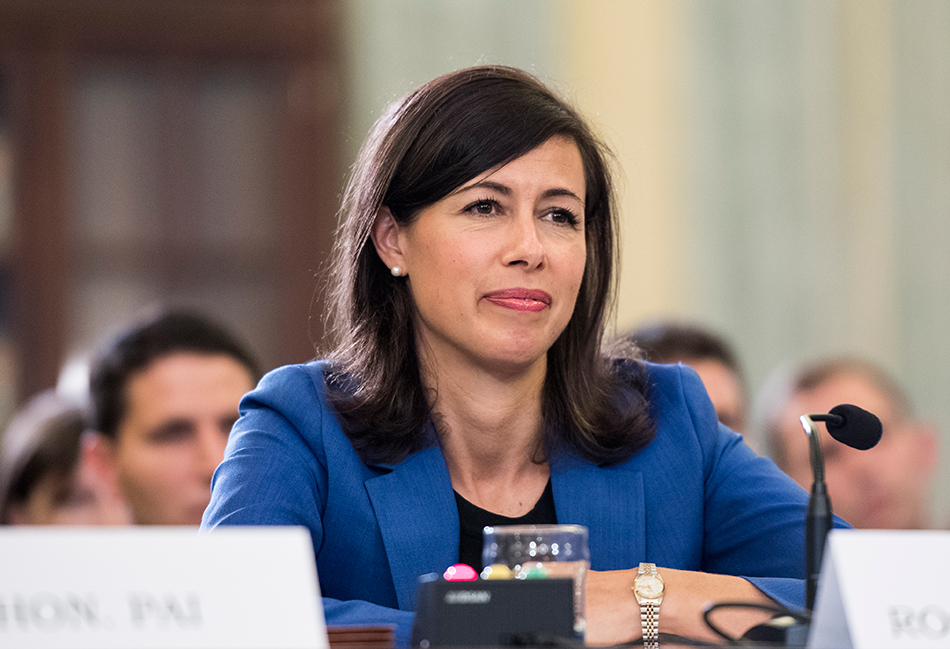ISP Coronavirus Efforts Can’t Bridge Political Gap
The smarter way to stay on top of the multichannel video marketplace. Sign up below.
You are now subscribed
Your newsletter sign-up was successful
Internet-service provider efforts to help close the digital divide and homework gap in the face of a pandemic that will require a new, remote normal have not closed the Washington, D.C., political divide over the treatment of deregulated ISPs.
Calls from Congress for emergency action have had a partisan cast. Letters from the House and Senate, signed only by Democrats, combined requests for price breaks and free service with invocations of regulatory gaps and industry failings that, they argued, the pandemic has exposed.

For example, a story in The Washington Post said that educators complaining about students lacking broadband raised the question “of whether the U.S, government and the telecom industry should have done more to cure the country’s digital divide — well before a pandemic gripped the nation.”
FCC Democrats, led by commissioner Jessica Rosenworcel, have long argued the agency and carriers weren’t doing enough to close the digital divide and the homework gap.
One suggestion from critics of the FCC’s deregulation of internet access is that the reason chairman Ajit Pai had to “make” the ISPs sign a “Keep Americans Connected” voluntary pledge not to pull the plug on subscribers that could not pay their bills, temporarily waive late fees and open their WiFi hotspots was that the agency gave away its authority over broadband Pai’s deregulatory fervor.
Tech news and opinion site website Ars Technica, a frequent Pai critic, headlined a story “After Deregulatory Blitz, FCC Scrambles to Prevent ISP Abuse During Pandemic,” suggesting that it was the elimination of network-neutrality rules that required Pai to pressure the ISPs into helping out. A spokesperson for Pai declined to comment.
One Democratic senator not afraid to give ISPs credit for their offerings was Sen. Mark Warner (D-Va.), one of the signatories to the Senate letter. Following the pledge and a string of announcements from ISPs about the resiliency of their networks and their efforts to keep people connected, and connect more people, Warner said in a public statement: “I’m pleased to see companies committing to expanding broadband access for students who may not have it so that their educations are not completely disrupted during school closures.” Though he did attribute the action to response to his letter, he, too, was getting political mileage out of the ISP move.
The smarter way to stay on top of the multichannel video marketplace. Sign up below.
For their part, House Energy & Commerce Committee Republican leaders highlighted what the private sector has done to ensure Americans have "vital internet services" during the coronavirus pandemic. They hailed the Pai pledge and praised ISPs for their numerous individual efforts, saying it was “a tremendous opportunity to work in a bipartisan way to improve connectivity issues.” No Democrats joined in that statement.
Comcast Cable president and CEO Dave Watson, in announcing the cable operator’s ongoing efforts, suggested it did not take government praise or prods to do the right thing in the current crisis.
“Our employees also live and work in virtually every community we serve, and we all share the same belief that it’s our company’s responsibility to step up and help out,” he said.
ISPs Enter Virus Fight
In addition to the FCC’s “pledge,” here are some of the FCC and ISP efforts, both before and after legislators weighed in, efforts Republicans were praising and Democrats were suggesting, while good, were not enough:
• The FCC provided temporary telework waivers to help American Sign Language interpreters provide video relay services to the deaf and hard of hearing and allows T-Mobile to use additional spectrum contributed on a temporary basis by Comcast, Dish and others.
• AT&T is paying to set up a “one-stop” resource center to support the State Educational Technology Directors Association (SETDA), which is developing distance learning tools for parents, teachers and schools.
• Cox Communications and Comcast relax their data usage overage charges for all tiers for the next 60 days.
• Verizon Communications pledged to boost capital spending by $500 million this year to speed 5G and “help support the economy during this period of disruption.”
• Various ISPs offered free broadband to low-income households without it for 60 days, with no obligation to continue the service after that time.
• Various ISPs boosted broadband speeds for no extra charge.
Contributing editor John Eggerton has been an editor and/or writer on media regulation, legislation and policy for over four decades, including covering the FCC, FTC, Congress, the major media trade associations, and the federal courts. In addition to Multichannel News and Broadcasting + Cable, his work has appeared in Radio World, TV Technology, TV Fax, This Week in Consumer Electronics, Variety and the Encyclopedia Britannica.

